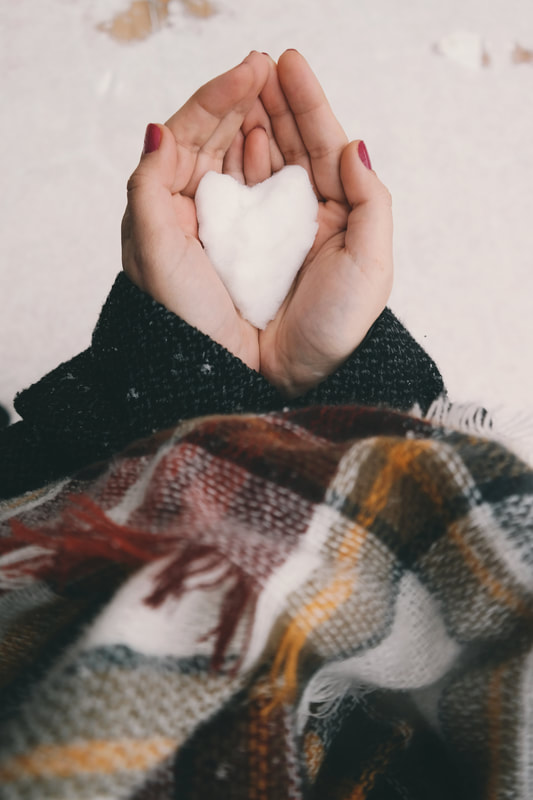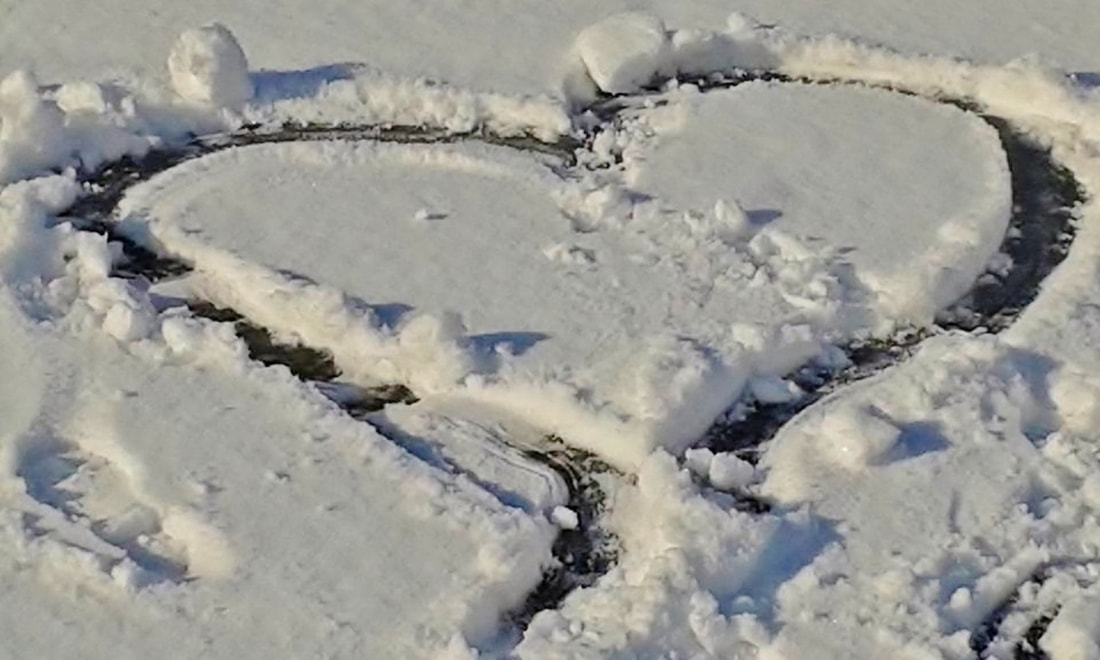Learning to Receive this Valentines Day: Why Leaning on Others is so Hard and So Important2/13/2019 As helpers - helping professionals, or people in all kinds of helping, caregiving roles - it can be really hard to reach out for help when we ourselves are having a hard day. February can be a hard month in general; we're all pretty Vitamin D deficient by now, we've been slammed with several snow storms that, although beautiful, make our lives more difficult. Valentine's Day doesn't necessarily help. As a classically romantic holiday, it can seem to privilege our romantic relationships over all of our other ones. Perhaps we are not partnered. Perhaps the people who are most supportive to us are not necessarily our romantic partners. In fact, all of our relationships can be very important to our well-being, not just our romantic ones. This Valentine's Day, I've been thinking about love in all kinds of relationships, self-love, and why it can be so hard for us to reach out for help. We might really need support from others right now. Again, it's been gray and stormy out. It seems that everyone I speak to is so tired, moods are low, we might have some disbelief that Spring will really come. So we may all need support right now. But again, it can be so hard to reach out and ask for help - especially for helpers, who can be so much more comfortable giving than receiving. Why is it so uncomfortable to ask for help, to learn to receive? For one, as lifelong helpers, when we help others, we end up feeling skilled, capable, strong, needed. On the other hand, when we ask for help, disclose our vulnerability, we may feel weak, needy; we may worry that we are burdening the other, an old tape that can play in our minds that likely stems from messages we received as kids. Two, it can be really risky to ask for help! What if the response we get isn't helpful?! What if it reinforces our wounded beliefs that we are a burden, that our pain makes us needy? What if the other person responds dismissively? What if they can't or won't hear us, don't respond in a way that helps? What if they are busy, unavailable, distracted? On an existential level, there is always a level of uncertainty when we risk asking for help; we can never predict with absolute certainty how the other person will respond. We may indeed end up in more pain than when we started; the pain and disappointment of having disclosed, and not being helped, being missed, being unseen. So yes, I'll admit, it is a risk, every single time we are brave enough to ask for help, lean on another. Because, what if we lean toward another, and the other person moves? Then we can fall! It can feel much safer to tell ourselves - we don't need anyone. There's less uncertainty, less risk. But then - we are left alone with our pain. We are often lonely. We are left with only our helper role, never able to get our own help! And isn't that just so unfair?! So, to quote singer-song-writer Sara Bareilles, I wanna see you be Brave! Consider who in your life feels supportive most of the time, has the potential to respond to your vulnerability in a compassionate and empathic way. Allow yourself to experiment with asking for help, with being vulnerable, with needing others! Allowing ourselves to recognize our need for others is in fact a sign of psychological health. It is a recognition of the interdepent nature of being a human being. (Look into attachment theory if you want to learn more! You can also check out the following book: Attached: The New Science of Adult Attachment and How it Can Help You Find - and Keep- Love.) Again, allowing ourselves to need others, to reach out for help, is a risk. It can be super painful when you reach out and the other person isn't supportive. But what about those precious moments when the other says or does just the thing you need?! Or, is willing to learn and get curious about what you need, able to adjust themselves to meet that need, and just really makes you feel loved and less alone. How magical, how healing! Yes, we can protect ourselves from the risk of being re-injured, but then we cut ourselves off from the possibility of receiving, of connecting through our vulnerability, of feeling so much less alone. Furthermore, the more we learn to receive, the more we learn or re-learn that we are worthy of receiving care, love, and support. The more we learn that our value is intrinsic, beyond our ability to help others, way beyond our productivity, even beyond our generosity, compassion, and love that we offer the world. We are worthy because we are alive, because we live and breath, because we are creatures with feelings and needs. And, perhaps paradoxically, the more we are able to receive, the more capacity we have to give to others. We begin to give from our bounty, rather than only from our scarcity. So be brave. Experiment with leaning on someone supportive this month. Allow yourself to gather evidence about who is likely to be supportive to you, who can be compassionate to you. Shift your viewpoint to looking for who might be capable of giving you the support you need, rather than only looking for who needs your help. Open yourself up to receiving. Happy Valentines Day <3 !
3 Comments
2/18/2019 01:28:18 pm
you nailed it. As a helper, it is difficult to receive, After reading your blog, the understanding is that you become a better helper by allowing yourself to be vulnerable and able to receive. Thank you
Reply
Paul Sileika
3/1/2019 08:38:28 am
Thank you for this post. As a person who thrives on nurturing others I also struggle with asking for help. I worry that my problems could seem boring to others, or I am overstepping my relationship. At the same time asking for help is a bonding experience and if I enjoy being nurturing, others may also value that experience. The suggestion to be "brave" is a good one and not something we always think to do.
Reply
Leave a Reply. |


 RSS Feed
RSS Feed